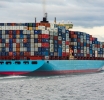Disinformation and Deglobalization: Key Risks of 2024

Disinformation and Deglobalization: Key Risks of 2024
As we traverse the second decade of the 21st century, the global socio-economic and political landscape undergoes an unwavering transformation. The year 2024 stands at the crossroads of technological advancement and geopolitical reorientation, posing unique challenges to global stability. Among these challenges are the ubiquitous presence of disinformation and the growing trend towards de-globalization—two phenomena that promise to redefine our world’s order.

Disinformation and Deglobalization: Key Risks of 2024
Disinformation and Deglobalization: The Twin Threats of 2024
1. Introduction to the Contemporary Landscape
The current global framework is characterized by a tenuous balance between interconnectedness and fragmentation. Technological innovations have created vast networks facilitating trade, communication, and cultural exchange on an unprecedented scale. However, this same era has witnessed rising political polarization, economic uncertainty, and social unrest.
Disinformation refers to the deliberate spreading of false or misleading information with the intent to deceive. It’s an age-old tactic supercharged by modern technology, where its reach and impact are amplified exponentially by digital platforms. De-globalization marks a retreat from international economic integration, driven by protectionist policies and a re-evaluation of global supply chains.
The significance of these trends in 2024 cannot be overstated. While they represent different spheres—information on one hand and economics on the other—their convergence could potentially exacerbate existing fractures within international communities.
The current global framework is characterized by a tenuous balance between interconnectedness and fragmentation. Technological innovations have created vast networks facilitating trade, communication, and cultural exchange on an unprecedented scale. However, this same era has witnessed rising political polarization, economic uncertainty, and social unrest.
Disinformation refers to the deliberate spreading of false or misleading information with the intent to deceive. It’s an age-old tactic supercharged by modern technology, where its reach and impact are amplified exponentially by digital platforms. De-globalization marks a retreat from international economic integration, driven by protectionist policies and a re-evaluation of global supply chains.
The significance of these trends in 2024 cannot be overstated. While they represent different spheres—information on one hand and economics on the other—their convergence could potentially exacerbate existing fractures within international communities.
2. Disinformation: A Digital Epidemic
Disinformation has evolved from covert operations into a widespread epidemic plaguing digital networks. Social media, once heralded as tools for democratizing information, now serve as breeding grounds for false narratives tailored to exploit societal divisions.
This proliferation of false information does not merely distort reality; it has tangible effects on public opinion and politics—manipulating elections, fomenting unrest, and undermining legitimate governance structures. The erosion of trust within society is perhaps its most insidious consequence—a populace divided against itself struggles to confront collective challenges effectively.
3. Deglobalization: The Shifting Economic Tide
Concurrent with the rise of disinformation is a palpable shift towards de-globalization. Sparked by trade wars, nationalistic policies, and heightened awareness of vulnerabilities in global supply chains due to pandemics like COVID-19, nations are reassessing their reliance on international networks.
The implications for international trade are profound; tariffs jeopardize decades of free-trade agreements while supply chain recalibrations hint at a significant upheaval in global manufacturing dynamics. Economic cooperation—an essential driver of post-war prosperity—is at risk as countries prioritize domestic industries over international partnerships.
4. The Interplay Between Disinformation and Deglobalization
The relationship between disinformation campaigns and de-globalization sentiments is symbiotic; each feeds into the other’s narrative. Disinformation stokes nationalist fervor by amplifying fears about foreign dependency or economic sabotage—alluding to job losses or decrying international agreements as unfair.
This climate emboldens political actors who advocate for closed borders in both physical markets and digital spaces alike—a dangerous cocktail that could lead nations down isolationist paths at a time when collaborative problem-solving is more crucial than ever before.
Disinformation has evolved from covert operations into a widespread epidemic plaguing digital networks. Social media, once heralded as tools for democratizing information, now serve as breeding grounds for false narratives tailored to exploit societal divisions.
This proliferation of false information does not merely distort reality; it has tangible effects on public opinion and politics—manipulating elections, fomenting unrest, and undermining legitimate governance structures. The erosion of trust within society is perhaps its most insidious consequence—a populace divided against itself struggles to confront collective challenges effectively.
3. Deglobalization: The Shifting Economic Tide
Concurrent with the rise of disinformation is a palpable shift towards de-globalization. Sparked by trade wars, nationalistic policies, and heightened awareness of vulnerabilities in global supply chains due to pandemics like COVID-19, nations are reassessing their reliance on international networks.
The implications for international trade are profound; tariffs jeopardize decades of free-trade agreements while supply chain recalibrations hint at a significant upheaval in global manufacturing dynamics. Economic cooperation—an essential driver of post-war prosperity—is at risk as countries prioritize domestic industries over international partnerships.
4. The Interplay Between Disinformation and Deglobalization
The relationship between disinformation campaigns and de-globalization sentiments is symbiotic; each feeds into the other’s narrative. Disinformation stokes nationalist fervor by amplifying fears about foreign dependency or economic sabotage—alluding to job losses or decrying international agreements as unfair.
This climate emboldens political actors who advocate for closed borders in both physical markets and digital spaces alike—a dangerous cocktail that could lead nations down isolationist paths at a time when collaborative problem-solving is more crucial than ever before.
5. Conclusion: Mitigating Risks for a Stable Future
Navigating through these twin threats requires concerted efforts across multiple fronts. Technological solutions like improved algorithms for detecting false information can limit disinformation’s spread while preserving freedom of speech remains paramount.
Education systems must adapt to imbue critical thinking skills that enable individuals to discern fact from fiction independently. Additionally, sensible regulation can provide necessary oversight without stifling innovation.
For de-globalization, policymakers must strive for trade policies that are fair but not isolationist—the goal should be diversification rather than severance of ties.
In conclusion, while disinformation and de-globalization pose significant risks in 2024, they are not insurmountable—provided we approach them with prudence and collective determination towards stability amidst an ever-evolving world order.
Disinformation # Deglobalization # GlobalSocioEconomicClimate # InternationalRelations # DomesticPolicies # CriticalThinkingSkills # TradePolicies # FairTrade # GlobalRiskManagement









Report
My comments